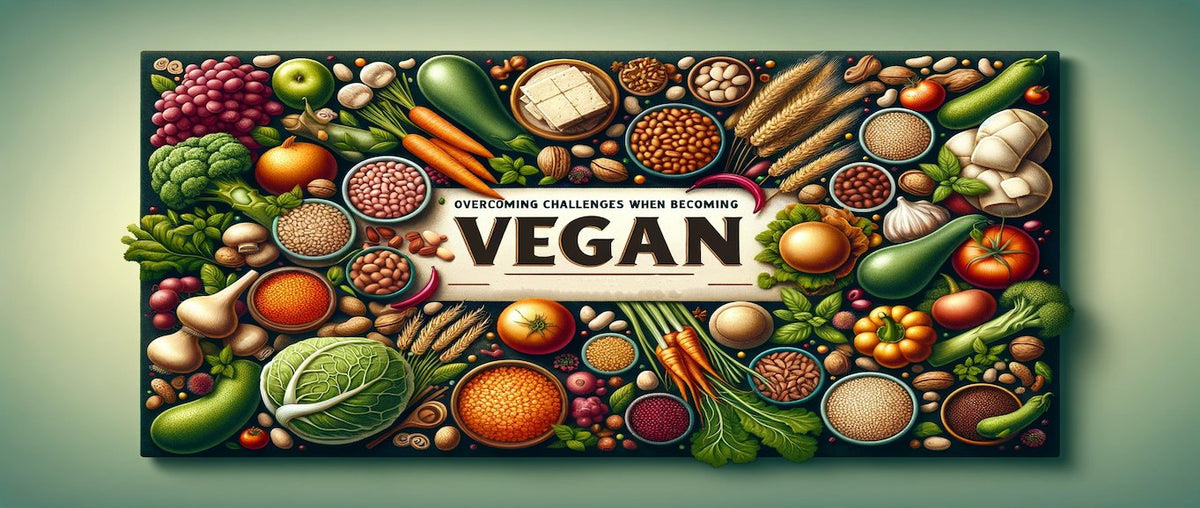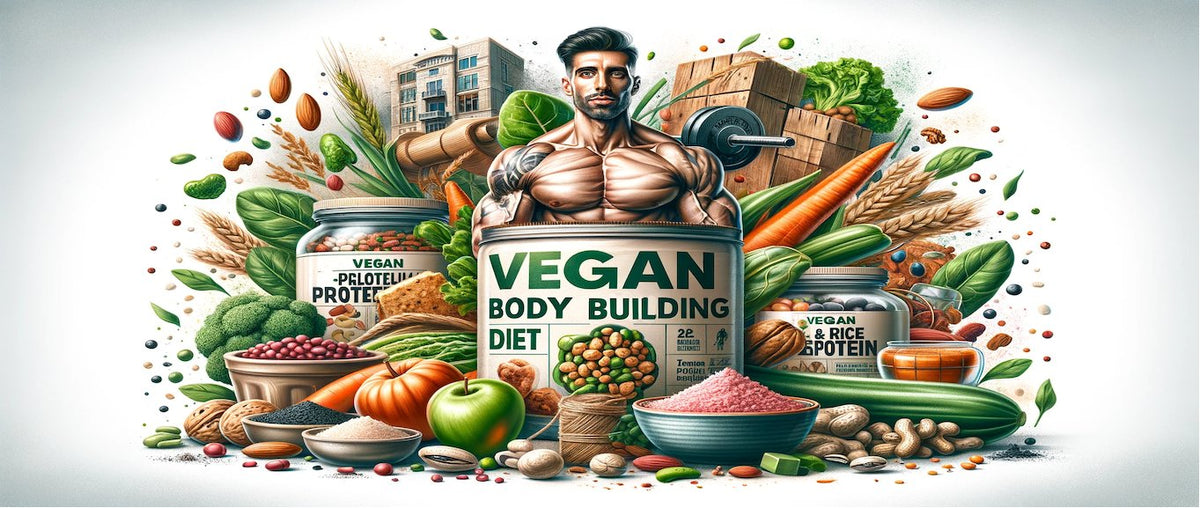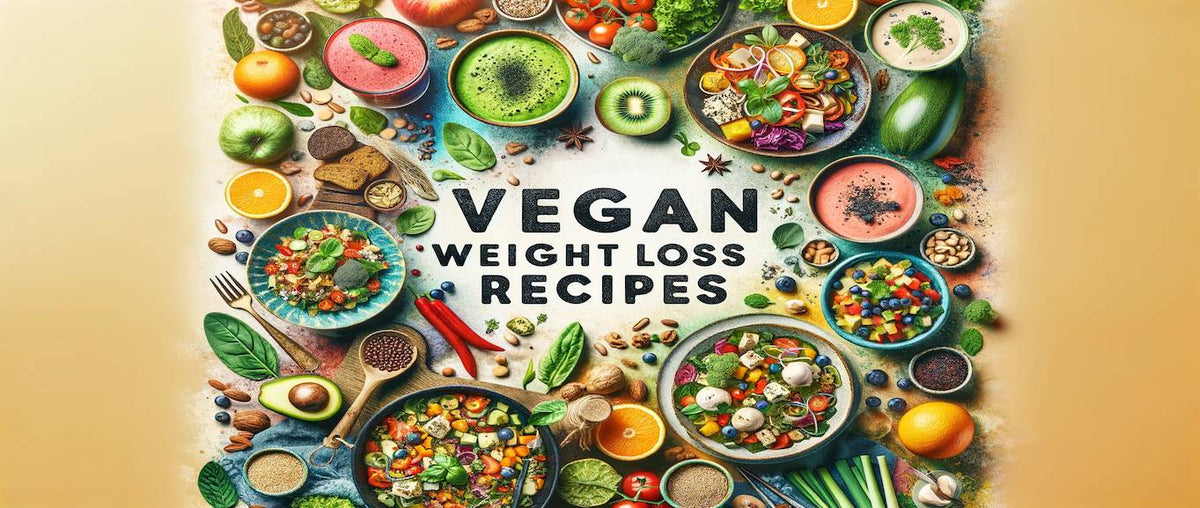Overcoming Challenges When Becoming Vegan
Veganism is more than a diet; it's a lifestyle choice that can present various Overcoming Challenges When Becoming Vegan. One major challenge is ensuring you're getting a balanced intake of nutrients, as discussed earlier. Social challenges also arise, particularly in settings where vegan options are limited or in social circles where veganism isn't well understood. Misconceptions about protein sources and health impacts can lead to unwarranted concerns from friends and family. Additionally, navigating food labels and ensuring products are not only vegan but also align with your ethical standards can be another hurdle. Despite these challenges, many find the transition to veganism rewarding and empowering.
Key Takeaways
- Veganism extends beyond diet to a lifestyle choice that is ethical, sustainable, and health-conscious.
- A variety of vegan products, including vegan cheese, vegan butter, and plant based foods, make transitioning easier.
- Navigating social dynamics and misconceptions about veganism requires patience and open communication.
- plant based cheese, cashew butter, and other alternatives offer delicious and nutritious options.
- Being a part of the vegan community can provide valuable support and resources.
Understanding Vegan Nutrition
Essential Nutrients and plant based Sources
Becoming vegan requires a well-thought-out approach to nutrition to ensure you're getting all the necessary nutrients. Proteins, essential in any diet, can be sourced from plant based foods like beans, lentils, tofu, and tempeh. Iron, another vital nutrient, can be found in leafy greens, lentils, and fortified cereals. Vitamin B12, predominantly present in animal products, needs to be supplemented in a vegan diet. Other nutrients to consider include omega-3 fatty acids, found in flaxseeds and walnuts, and calcium, available in fortified plant milk and tofu.

Meal Planning and Preparation
Planning is crucial for a balanced vegan diet. Start by learning about various vegan ingredients and how to cook them. Experiment with different cuisines that are naturally plant based, like Indian or Mediterranean. Meal prepping can save time and ensure you have healthy options on hand. Incorporate a variety of foods to cover all your nutritional bases – grains, legumes, vegetables, fruits, nuts, and seeds. Remember, a vegan diet isn't just about removing animal products; it's about embracing a diverse, plant based diet.
Navigating Social Dynamics
Dealing with Social Pressure and Stereotypes
Navigating social settings as a vegan can be challenging. You may face stereotypes or feel pressured to conform to non-vegan norms during gatherings. To handle these situations, it's helpful to communicate your dietary preferences clearly and politely. Be prepared to answer questions about veganism and share your reasons for choosing this lifestyle in a non-confrontational manner. Remember, being a vegan ambassador can sometimes mean educating others with patience and understanding.
Veganism in Cultural Contexts
Veganism may sometimes clash with cultural traditions centered around animal-based foods. Respecting these traditions while adhering to your vegan principles requires tact. It's important to express your dietary choices in a way that respects others' customs. Offer to bring your own dish to gatherings, or suggest vegan alternatives that align with cultural dishes. This approach can open a dialogue about veganism while respecting cultural diversity.
Getting All Your Protein and Vitamins
A common concern about vegan diets is getting enough protein and vitamins.plant based protein sources include legumes, grains, nuts, and seeds. These foods provide essential amino acids when combined throughout the day. For vitamins, focus on a variety of fruits, vegetables, whole grains, and fortified foods. Vitamin B12, typically found in animal products, should be obtained through fortified foods or supplements. Regular nutrient intake checks can ensure you're meeting your dietary needs.
Social Troubles, Restaurant Menus, Misunderstandings
Dining Out as a Vegan
Eating out can be a challenge for vegans, especially in restaurants that don’t cater specifically to vegan diets. It’s important to research restaurants in advance and look for those offering vegan options. Don’t hesitate to call ahead and inquire about vegan dishes. When dining out, communicate your dietary preferences clearly to the waitstaff, and don’t shy away from asking for modifications to existing menu items.
Misunderstandings and Communication
Misunderstandings about veganism are common. You might encounter misconceptions about nutritional deficiencies or the belief that vegan food is unappetizing. Clear, positive communication about the benefits of veganism, and sometimes sharing delicious vegan food, can help break down these barriers and correct misunderstandings.
Perception and Misconceptions
Why do People Hate Vegans?
Some people may have negative perceptions of vegans due to a misunderstanding of their motivations or stereotypes portraying them as overly aggressive or judgmental. Addressing these perceptions requires empathy and open, non-confrontational dialogue. Sharing personal stories and reasons for choosing veganism can help dispel myths and foster understanding.
Extending The Definition of Veganism
Veganism extends beyond diet to a lifestyle choice that avoids animal products in all forms. It's about making ethical choices that minimize harm to animals, which includes being conscious of clothing, cosmetics, and other consumer goods.
What Does Vegan Hate Look Like?
Vegan hate can manifest in mocking, exclusion, or disdain towards vegans and their lifestyle choices. It often stems from a lack of understanding or exposure to misinformation. Education and awareness-raising are key to combating such negative attitudes.

Is it Possible to Shift the Negative Perspective of Vegans?
Vegans often face stereotypes and misconceptions in their day-to-day lives. However, by showcasing the variety and richness of vegan cuisine, including Vegan Cheese, Cashew Butter, and other vegan food products, they can challenge these negative perceptions. Educating others about the environmental and health benefits of plant based foods and plant based cheese can also help shift attitudes.
Vegans should aim to be inclusive and understanding, inviting dialogue rather than confrontation. By focusing on the positive aspects of veganism, such as its role in promoting cholesterol free foods and Fat Free Butter, they can foster a more accepting and open-minded approach towards veganism.
Communication and Identity
Expressing Vegan Identity
For many, being vegan is an integral part of their identity. It's not just about choosing plant based foods; it's a commitment to a lifestyle that respects animal rights and environmental sustainability. Vegans often find creative ways to express this aspect of their identity, whether through clothing, activism, or by choosing Vegan products in their daily lives.
Veganism in Relationships
Navigating relationships as a vegan can be challenging, especially when significant others, family, or friends do not share the same values. Communication is key. Sharing your reasons for choosing veganism, which might include health benefits from cholesterol free foods or ethical considerations around plant based products, can help others understand your perspective. Cooking together using vegan cheese or vegan butter can be a fun way to introduce loved ones to the joys of vegan cooking.
Increasing Interest in Veganism
The global interest in veganism has seen a significant rise, driven by factors such as health consciousness, environmental concerns, and ethical considerations regarding animal welfare. This growing interest is reflected in the increasing availability of vegan food products in mainstream markets, including vegan cheese, plant based foods, and vegan butter. Moreover, the rise of Vegan Shop both online and in physical locations has made it easier for consumers to access a variety of vegan products.
plant based cheese and alternatives like cashew butter and vegan mayo are becoming popular, not just among vegans but also with those looking to reduce their meat consumption. These products cater not only to the vegan community but also to those seeking cholesterol-free foods and fat-free butter options, highlighting the health benefits associated with vegan choices. The evolution of plant based products has played a crucial role in making veganism more accessible and appealing to a broader audience.
Practical Tips for New Vegans
Embarking on a vegan lifestyle can be overwhelming at first. Here are some practical tips to make the transition smoother:
1. Explore Vegan Alternatives: Discover the variety of vegan food products available. Try different types of vegan cheese and plant based foods to find your favorites.
2. Learn to Read Labels: Not all products that appear vegan are free from animal derivatives. Learning to read labels is crucial for selecting vegan products.
3. Experiment with Recipes: Cooking at home can be a delightful way to explore vegan cuisine. Use Cashew Butter in your desserts or vegan mayo in your salads.
4. Join Vegan Communities: Connecting with other vegans can provide support, tips, and recipes. Online forums and local groups can be great resources.
5. Plan Your Meals: Meal planning helps in ensuring a balanced diet and reduces the stress of last-minute meal decisions. Incorporate a variety of plant based products into your diet.
Conclusion
Veganism is a journey filled with learning and discovery. While there are challenges, the benefits of a vegan lifestyle, including a diet rich in cholesterol-free foods and plant based products, can be immensely rewarding. Embrace the journey with an open mind and a willingness to explore, and remember that every small step counts towards a more ethical and sustainable lifestyle.
Do you enjoy vegan food? We have a list of vegan restaurants in India to help you find delicious options in your area!










